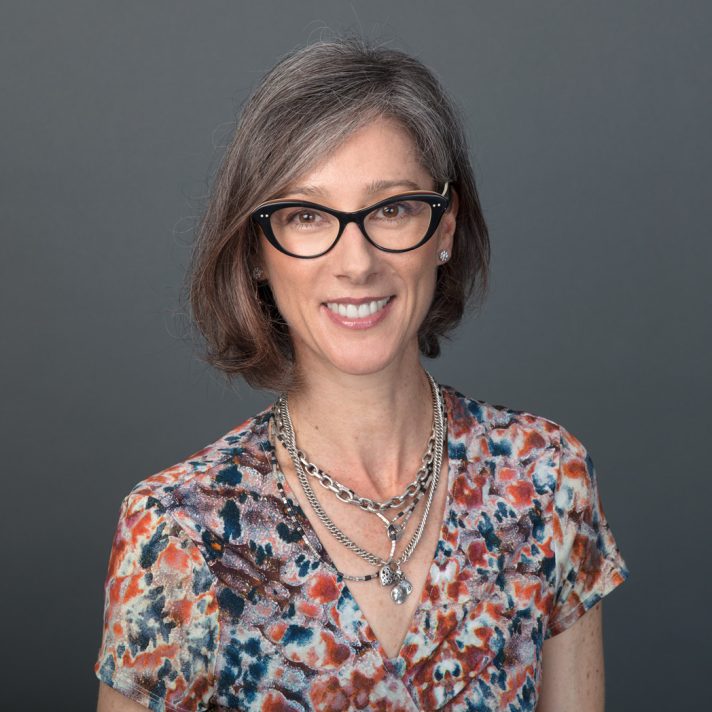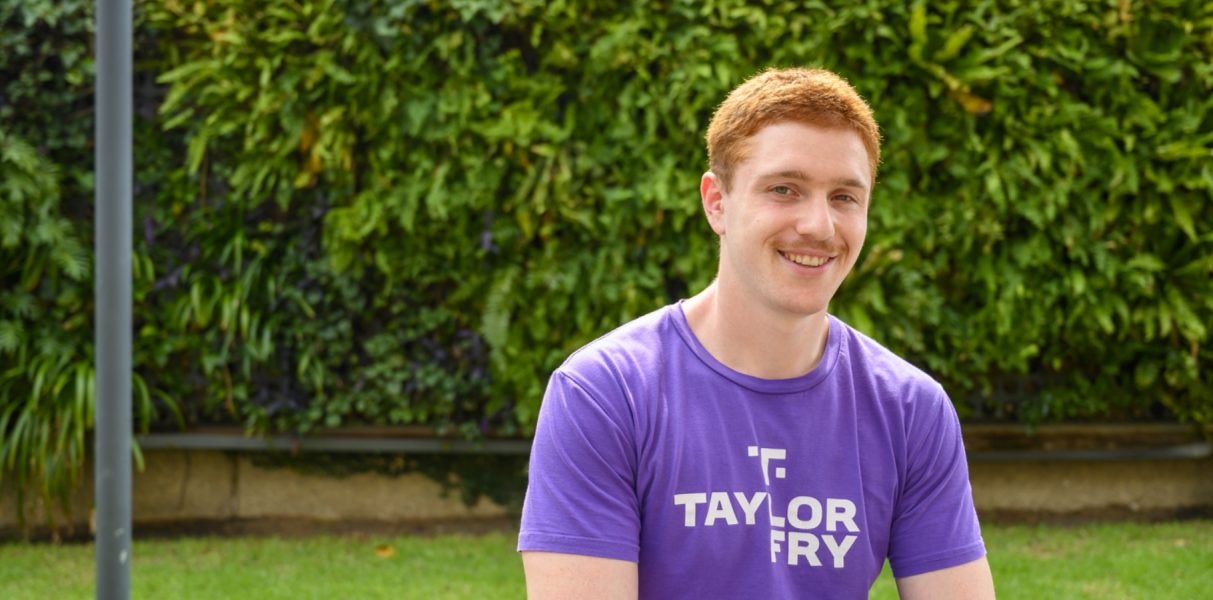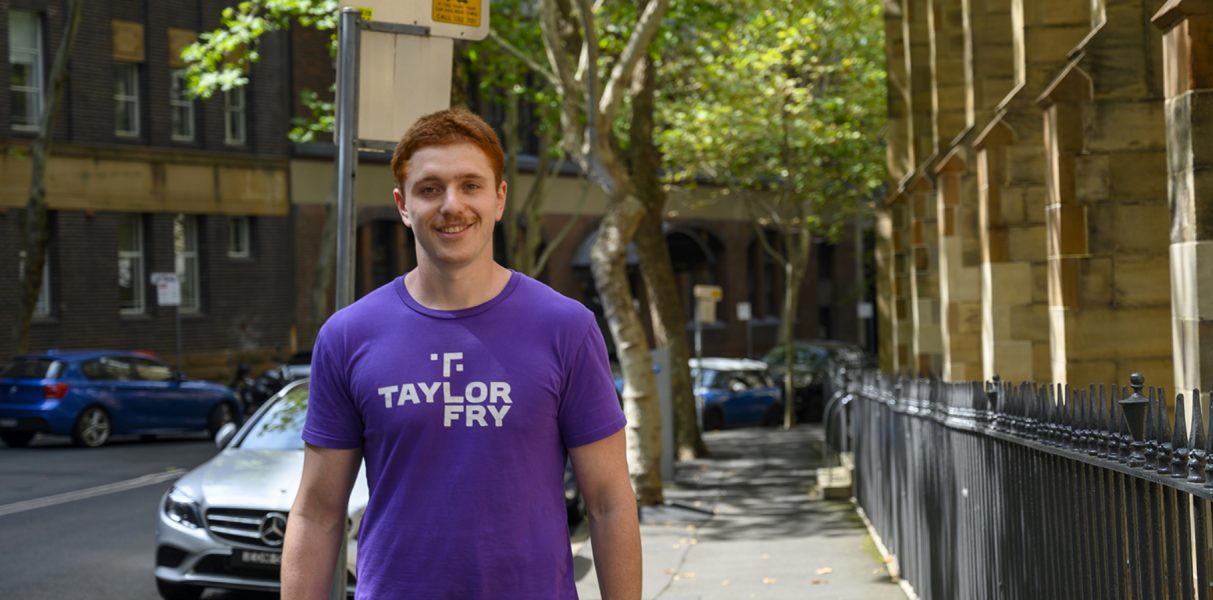Meet our grads
Aidan Robern


Studied: Bachelor of Economics, Masters in Public Policy
Joined Taylor Fry: November 2018
Location: Sydney
Home team: Government

We didn't even force him to wear the T-shirt
With qualifications in economics and public policy, what enticed you to the actuarial and analytics consulting world – and to move from Canada to Australia as well?
At university, what interested me most were the statistics courses, where I learned to use quantitative methods such as econometrics in evaluating public policy and designing programs to help the most vulnerable people experiencing the worst outcomes.
I was excited to work in an actuarial and analytics consultancy at Taylor Fry, where ‘evidence based’ really means something, where people use proven analytical methods to influence positive change.
As for moving countries, I was never looking to leave Canada! Then I met a former Taylor Fry employee at a networking event through my masters program in Ottawa, where we were assessing a policy issue together. She liked how I was able to look at a few charts and identify who was suffering from this policy and who was missing out. She said, “I know a firm that does some really cool, cutting-edge analytical work in the government space in Australia and New Zealand, and you should contact them. She introduced me to [Taylor Fry co-founder] Alan Greenfield via email, and the rest is history!
How have you settled into the work environment?
It was an extremely steep learning curve! Back home, after my masters, I worked for about six months as an economist in the Ontario government. It was a role that greatly improved my communications and critical thinking skills, and which included some quantitative work, but nowhere near the degree of statistical rigour I’ve encountered here. What helped at Taylor Fry was managers and principals giving me the time to develop my skills and ensure I was on a broad set of projects that allowed me to utilise my qualitative skills in program evaluation, along with developing coding and statistics skills.
Has it met your expectations?
Yes, because I’d researched what actuaries were and the work Taylor Fry had done with the Ministry of Social Development in New Zealand, which was widely publicised. I was passionate but not experienced, so I was excited and nervous, knowing it would be challenging but hopeful I’d be part of projects to effect some change for government and society – and I have been!
In what way does your economic and public policy background complement the actuarial and analytics work – does it give you a different perspective to the way you approach projects?
Actuaries seem to be the masters of prediction. In my economics and public policy background, the focus is less on what will happen and when, but why – it’s a different but complementary perspective. I’m curious about causal links, the story behind an event.
If you’re going to enact public policy, identifying who to target is complex. Taking a really accurate prediction and looking for the underlying characteristics that may affect what happens next adds an extra dimension, and I’ve had some good feedback with this approach.

No haters, just players in the Taylor Swifts
How does the work and work culture in Canada translate in Australia?
I love that Australia seems to have a better commitment to work-life balance and leave entitlements. I’ve also been impressed at the rate grads at Taylor Fry pick up the work. Australia seems to do a very good job of preparing people for a professional environment straight out of university.
At Taylor Fry, often the directors will be coding right along with the grads, and everyone is a valuable member of the team pretty much within a month. It doesn’t feel very hierarchical, which makes it much easier to ask a senior person a simple question.
That’s the big difference for me, coming from government, which is such a massive machine where teams and departments tend to be very siloed. Here, I love the emphasis on knowledge sharing, which carries through beyond individual projects. For example, our ‘talking points’ sessions [where someone will present to the rest of the firm on recent work by their team], workshops, the team meetings and the R coding forum are all so helpful.
I’m not an actuary, so I wouldn’t ever see myself at a typical insurance-based consultancy. My passions lie in analytics but also in public policy, social outcomes, helping the vulnerable and improving the world for everyone. That’s why Taylor Fry appealed to me.
What excites you about analytics and have you had an opportunity to explore it here?
The incredible potential for modelling analytics to do good in the world excites me – using the wealth of data governments own to draw insights that can help people. I’ve had a great chance to explore this, having just finished a two-month stint in New Zealand working for the Ministry of Social Development. It’s a spectacular project, using predictive modelling to forecast what the vulnerable population is going to look like into the future at a micro level. That’s extremely powerful, and such a good use case for why analytics matters for government.
What’s your advice to someone from a non-actuarial background who may be considering jumping ship, too?
If you have a passion and demonstrated ability to do maths at a strong level, and you want to be on some cool and innovative work and have a chance to learn a lot, then I think it’s something you should look into – as long as you go into it with no ego. If you ask the right questions and you’re not afraid to ask for help from the experts here, you’ll do fine.

Not the type of modelling Aidan originally had in mind ...
You’ve decided not to take on actuarial study. Was that difficult and how do you see it influencing the type of work you’ll do?
I’ve struggled with the decision for the past year, but ultimately my partner and I would like time to explore Australia, plus I’ve already learned so much on the job. Taylor Fry offers generous study leave, so it was a sacrifice. It could help me significantly in my career future and I would encourage anyone considering it to take it on, but it makes sense for us to make the most of this adventure.
As a non-actuary, I am unlikely to be a part of certain types of work – general insurance valuations, for instance. But Taylor Fry does enough work in the analytics, government, regulation and data visualisation spaces to keep me busy.
When I’m working with clients, while it might take me time to pick up on the code, I’ve had a lot of positive feedback, where they’ve felt I’ve understood their business case from the beginning, asking them the right questions and taking a more strategic approach.
What has a secondment taught you?
First, it taught me that Taylor Fry is well respected. It also taught me about the power of your advice. On secondment, often I would be the only person from Taylor Fry with the stakeholders, and whatever I’d say was reflective and representative of the company. There’s a huge amount of reputation at risk. If you’re going to give advice that may require a big change, always have it peer reviewed by someone with more experience. The last thing you would ever want is to give advice and realise later you’d made a mistake and it’s already gone to the general manager, and a policy has been implemented. It taught me to be rigorous.
On the social front, you’re quite involved in the activities offered at Taylor Fry. What motivated you?
I like sports and I like how Taylor Fry has sports going on all the time. I look forward to Thursday’s basketball. I always have my gear ready and if people aren’t ready to play, I try to egg them on to play. It’s important to be with your colleagues during the workday but also to get out of the office environment, expend some energy and have fun together – collaborating in a different setting.
It’s actually the healthiest workplace environment I’ve ever experienced. I love that on any given day, you can sit at the lunchroom table and people will be doing the newspaper quiz together. And I can have a beer in the office with everyone on a Friday afternoon – you wouldn’t see that too often in Canada!
Want to know more about our program? Head over to our graduate program page.
Recent articles
Recent articles
More articles

Taylor Fry boosts climate expertise
Climate and financial risk specialist Dr Ramona Meyricke rejoins our ranks to lead our climate practice, as we focus on meaningful solutions
Read Article

LA wildfires – implications for the upcoming Australian reinsurance renewals
What are the flow-on effects of the January LA wildfires in Australia?
Read Article





